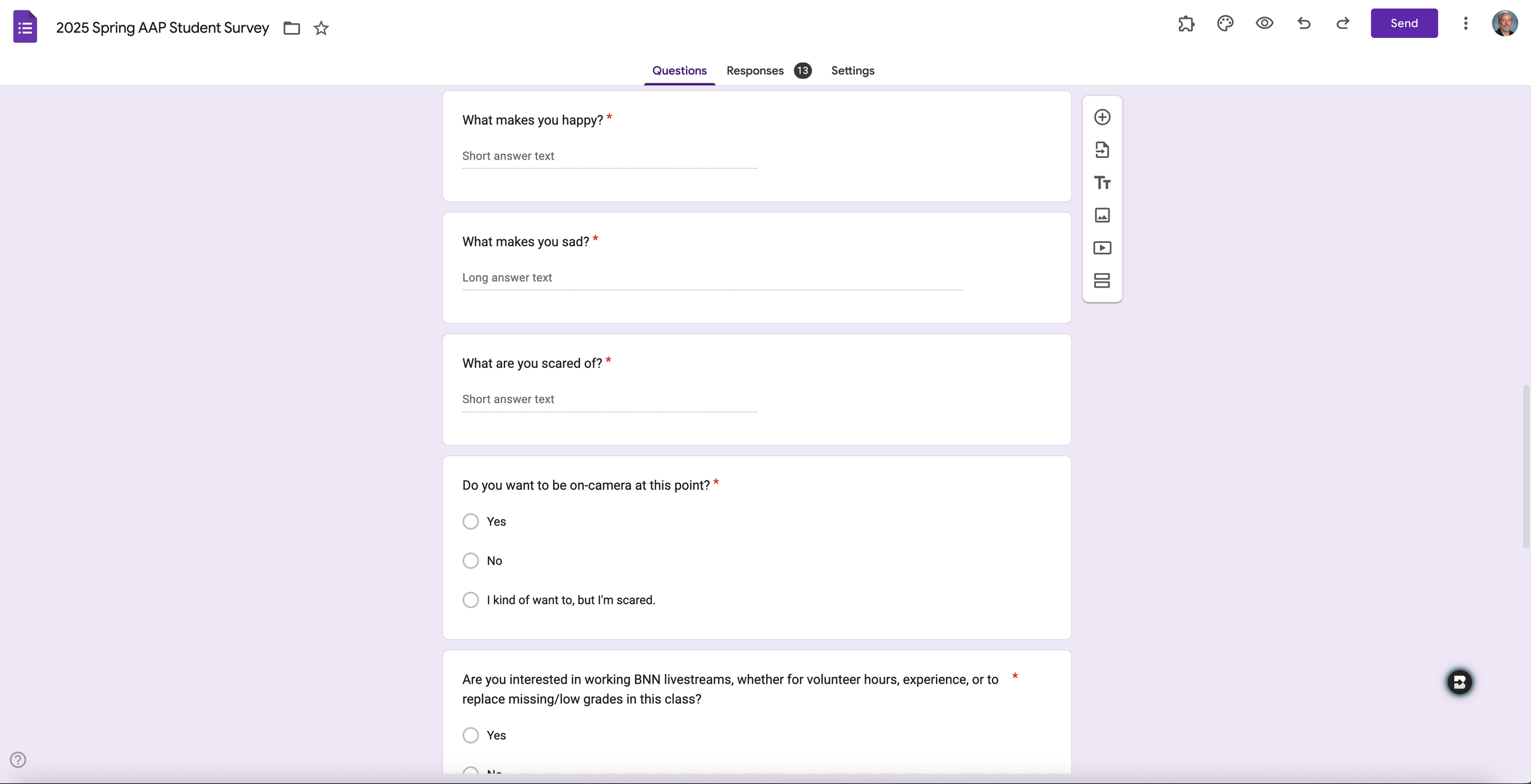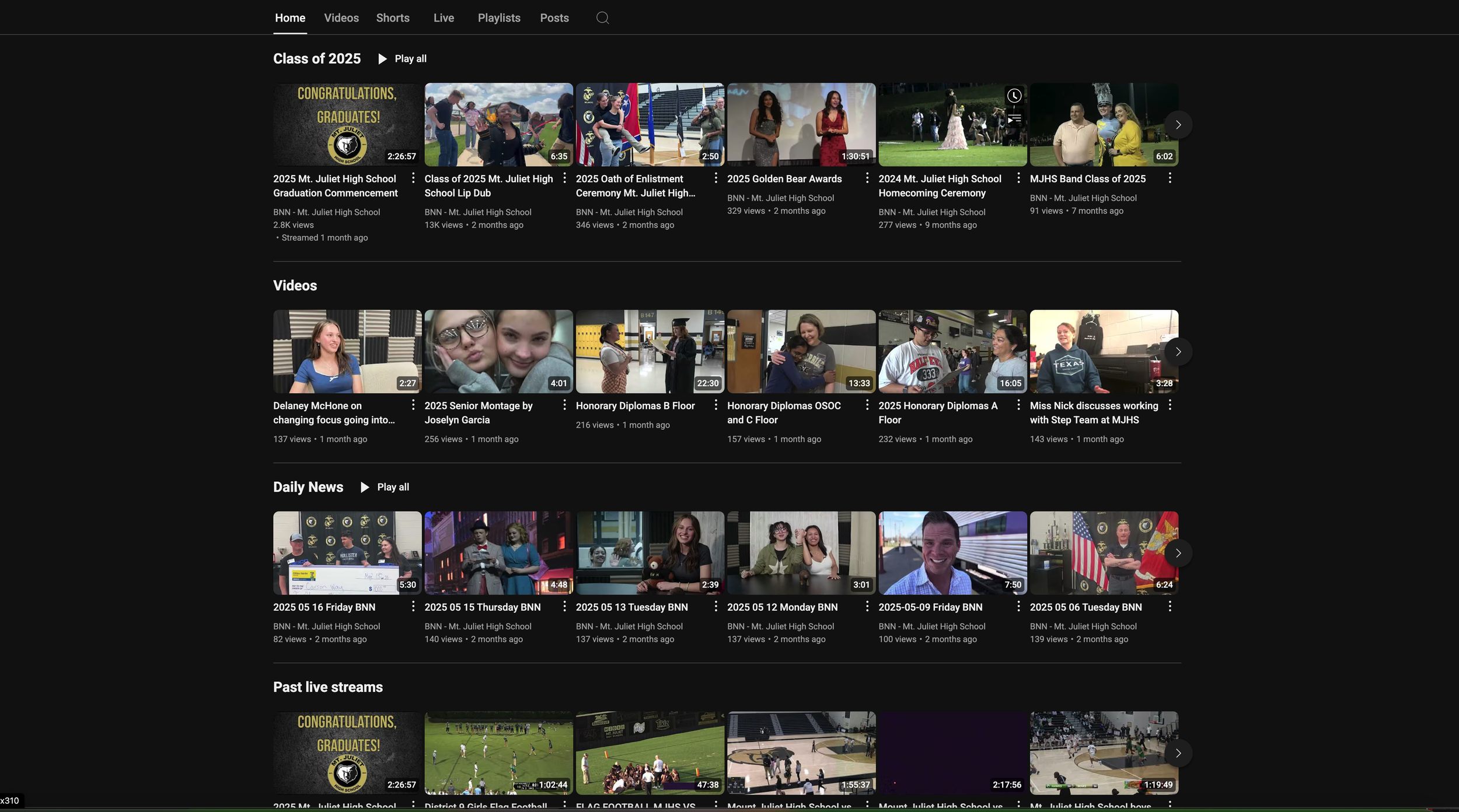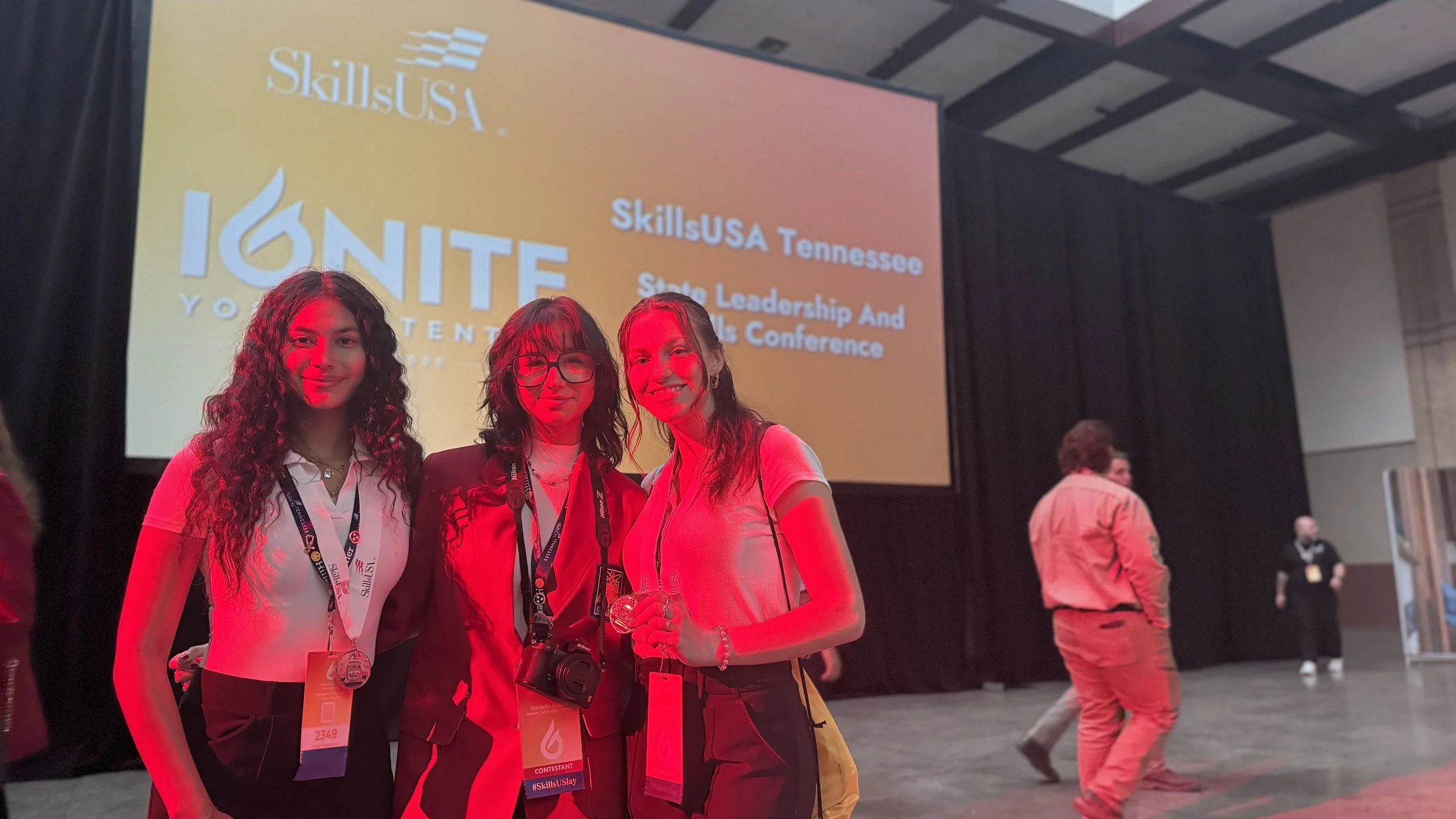5 things I do before school starts
Students return to school here in Wilson County, Tennessee on August 1st. Every year around this time, teachers fall into one of three major categories:
First, “I’d rather not.” If you’re reading this, you don’t identify with those folks.
Second, “I’m excited, but I never feel prepared enough.” These are my people.
Third, “I’m excited and I’m definitely exactly as prepared as I need to be.” Good luck to them
The truth is that a significant amount of planning is important, but it’s very possible that such plans are teacher-first, student-second, and assume control over all variables.
When preparing for a new year running BNN at Mt. Juliet High School, I spend June researching and testing new technology possibilities. After Independence Day, I try to step away from the tech and focus on people and processes. Here’s what that looks like.
Know my students.
The first step is requesting current rosters from our guidance department. For 2nd/3rd level students, this provides lead time on grouping, strengths/weaknesses, etc. I also save time if I discover that there are students who shouldn’t be in the class due to course sequence mishaps, and/or see new students in advanced levels coming from other schools who might need to catch up on processes and expectations.
Surveying students casually at the beginning of the semester is helpful for knowing the kids and having a quick way to get them used to my LMS structure and expectations.
Our roster system also has indicators for disabilities, allergies, and other personal/family situations I might need to be aware of to do right by the kids.
This is when I know which students already have portfolios to review, which helps with goal-setting, whether that means building on strengths or mitigating weaknesses. For 1st level students, I set up Google Drive portfolio folders. I keep those folders under my own schools account, so I can manage access for various projects and have access to exemplar possibilities after students graduate and their accounts are deleted.
Some stuff worth knowing just can’t be until the kids are in the room. I set up student surveys for the first couple of days back, varying them for different course levels. Knowing the goals, interests and fears of the students shows new opportunities and helps me have something to talk with individuals about to let them know they are interesting and I’m interested. That goes a long way in building relationships, alleviating anxieties, and creating connections between students that might not happen otherwise.
Review standards for project connections.
July is a great time to review the standards for my class. Sometimes teachers find later in their careers that the standards have changed, or rather, don’t find out until it’s a problem. Even reviewing unchanged standards at least once a year with fresh eyes will provide new possibilities and ways to simplify the year based on how last year went.
If I’m introducing new projects, I need to know how many standards those projects connect to. If admin, colleagues, or the community are requesting projects, then those projects need to either fill a standards gap or do a better job than a previous project of attacking a state standard. Document all of the standards connections for everything you do!
This is also a chance to increase the number of reasons for every project by connecting standards to competition preparation. Getting ready for students to compete doesn’t have to be a separate thing from class. I find it’s efficient to have competition be the logical and natural end result of learning. After all, the job market itself is competitive.
BNN at Mt. Juliet High School puts out a LOT of videos, both pre-produced and live. Keeping a grip on possibilities and the calendar is crucial, and so is teaching students how to do the same.
Rough out the calendar.
It’s a bad idea to be too Type A with the planning, if you can avoid the urge. Admin, weather, testing schedules, absences and other disruptions WILL wreck you if you overplan, and the students notice and absorb how you deal with that. We have to model problem solving and flexibility.
On the other hand, complete looseness won’t get anything accomplished. The students need structure and inertia, even if they don’t know it. Improvisation is valuable, but improvise around a script.
July is when I rough out our project schedules, livestreams and multi-cam recordings, competition possibilities, etc. It’s important to know where we hope to land at the end of the semester, at each report card period, and each progress report period. Working backwards from the desired end results often puts math to aspirations and keeps us on the rails, neither over-working or the opposite.
When the kids see that their recent predecessors won medals, they know they can also do so.
Remember to inspire the students.
We are all motivated by inspiration and love. Putting students first means knowing they lead with and are stunted by their feelings. I plan to make them feel something right away by showing them what’s possible. I show best-case final products from previous semesters of each course level, interviews with and work from former students who are now in the professional world or college tv/film programs, and competition results from previous years. I also show them clips from their favorite media that executes the concepts from the standards, and this lets them know what their learning could mean later on, if they want to be great.
Teach self-sufficiency.
The last big thing I do is review my systems and expectations for making the students as self-sufficient as possible. Like nearly all jobs these days, operating procedures and processes are all online for them to review whenever needed. Our Master Planning Spreadsheet lets them participate in project management and fill needs. My students know they aren’t allowed to ask me any low-hanging fruit before they have reviewed the available materials and asked their classmates first. My kids aren’t allowed to struggle alone, nor are they allowed to have low expectations for their own problem-solving abilities.
It’s going to be a good year! (Yes, a sixth thing.)
It’s also important to get all this done early enough to breathe for a bit before the students arrive. Getting centered before the show starts is important in any job. I swear by all of this. I’m going into Year 8, and I haven’t had a bad year yet.
Meet the Author, James Peach
James Peach has been teaching Audiovisual Production since fall of 2017. His program, BNN at Mt. Juliet High School, publishes a news show four days a week in addition to over 20 sports, arts, and ceremony livestreams per year. Mr. Peach’s students are 3x SkillsUSA state medalists in the last five years, and recently won the National Academy of Television Arts and Sciences Director Award for their Class of 2024 Lip Dub.












As summer winds down, the familiar rhythm of a new school year approaches. For educators like James Peach, the weeks leading up to students' return aren't just about shuffling papers; they're a strategic dance of preparation, aiming to ignite inspiration and cultivate self-sufficiency.